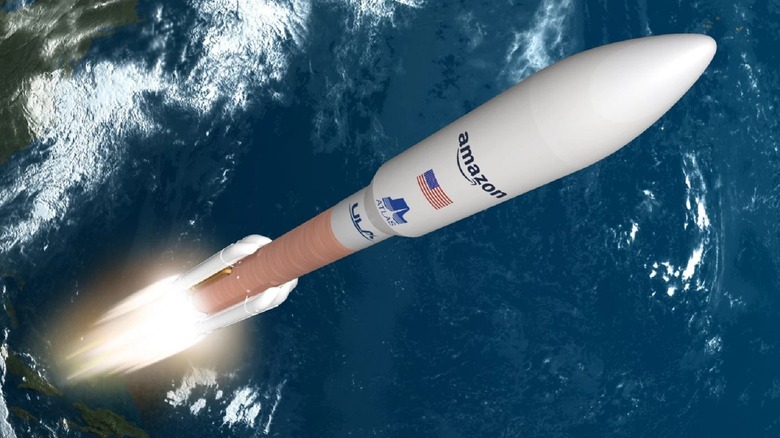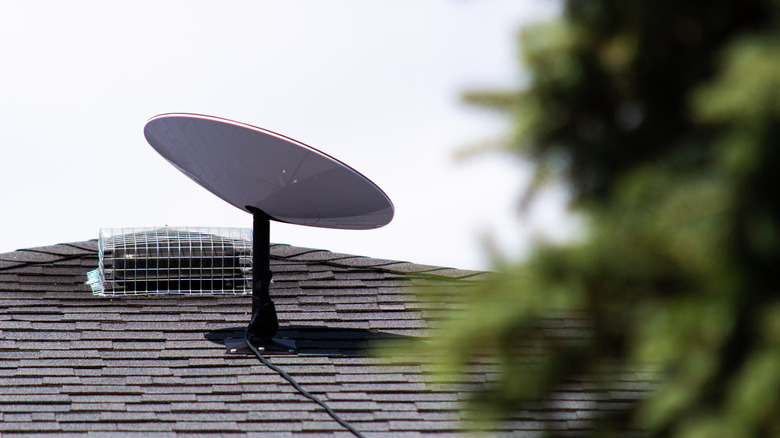Amazon's Project Kuiper Satellites Just Found Their Rides Into Space
For nearly three years, Amazon has been laying the groundwork for 'Project Kuiper,' the company's effort to build a constellation of low-Earth orbit satellites that will beam internet access around the globe. Like SpaceX-owned Starlink, Amazon intends to use Project Kuiper to bring fast, reliable internet access to people living in remote locations. While SpaceX has leapfrogged Amazon with its satellite internet service already available in 29 countries, Amazon, on Tuesday, announced it has signed launch pacts with three companies for supplying and launching rockets to carry Project Kuiper satellites into space.
Companies that are part of the deal include major players in the satellite vehicle industry — European launch provider Arianespace, Jeff Bezos' Blue Origin, and U.S.-based United Launch Alliance. The contract envisions these companies will conduct as many as 83 new launches in the next five years to reach Amazon's goal of injecting all 3,236 Kuiper Belt satellites into a low-earth orbit.
From what is known thus far, Arianespace will conduct 18 launches for Amazon using its new Ariane 6 rocket. BlueOrigin will be responsible for 12 launches using its Glenn rocket. With 38 proposed launches, the success of United Launch Alliance and its Vulcan rocket will be crucial for Project Kuiper. Earlier, Amazon purchased nine Atlas V rockets from United Launch Alliance.
Amazon claims that this deal is the largest commercial procurement of launch vehicles in history. However, since Amazon intends to have all 3,000-plus satellites up and running only by the end of five years, we can safely assume that it will be a while before Amazon actually starts rolling out its own brand of satellite Internet.
SpaceX given the cold shoulder?
Because Project Kuiper will compete against SpaceX's Starlink a few years down the line, it was evident why Amazon did not approach SpaceX for its launch vehicle requirements. Experts, however, were quick to note that SpaceX's proven range of rockets would have made a better choice for Project Kuiper by any stretch of the imagination.
Apart from costing Amazon significantly less money, the success rate would also be much higher, given that SpaceX's Falcon 9's have been in business for a long time now. Making things worse for Amazon is the fact that none of the rockets chosen for the missions have proven themselves in flights so far. Glenn — the Blue Origin-made rocket — is still a good two years away from its first commercial launch. As for the Ariane 6, this rocket typically averages six to nine launches every year. However, with Russia's Soyuz vehicle potentially unavailable for future supply flights to the ISS, there is the likelihood of NASA looking at Ariane 6 as a potential replacement. It is unclear how Arianespace intends to cater to this potentially massive surge in demand in the coming months.
Given what we know about Amazon's plans for 2022, where only two dummy satellite launches have been proposed, it is unlikely that Project Kuiper will pose any real threat to Starlink's dominance in at least for the next couple of years.

